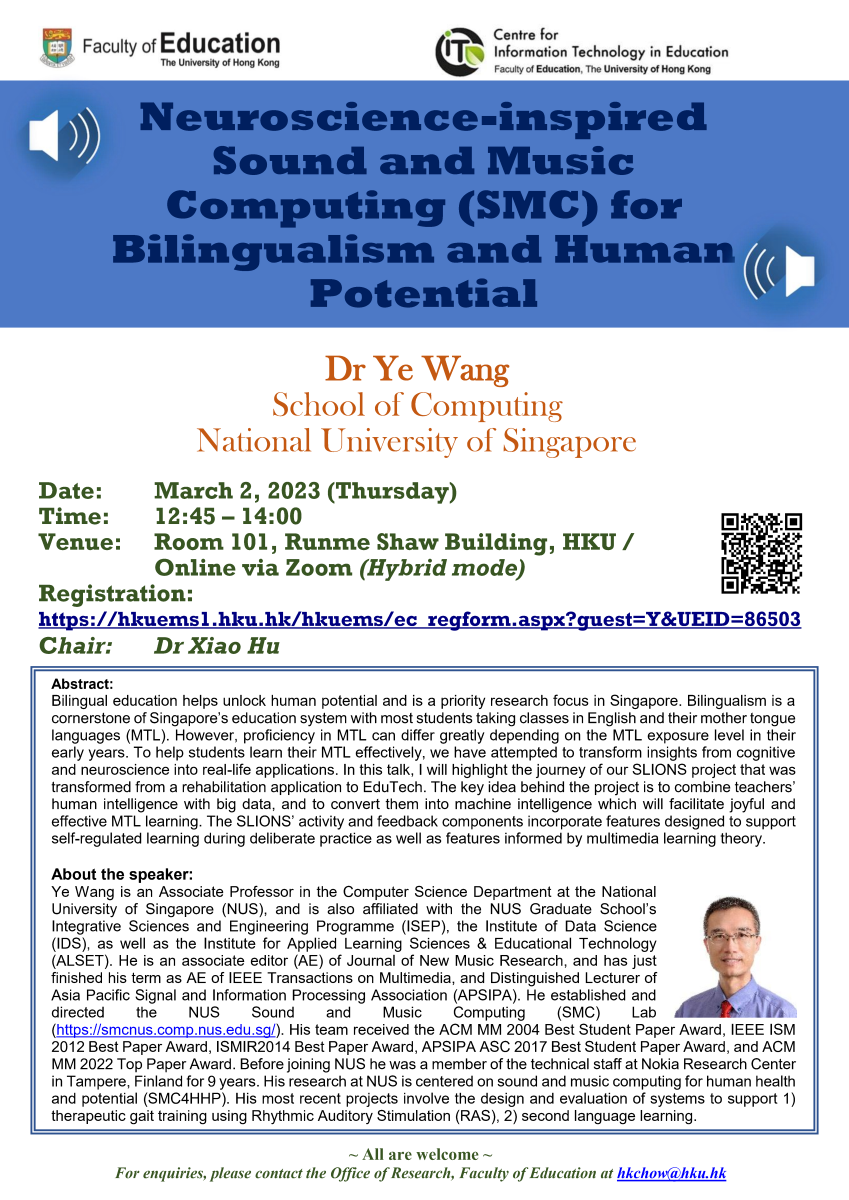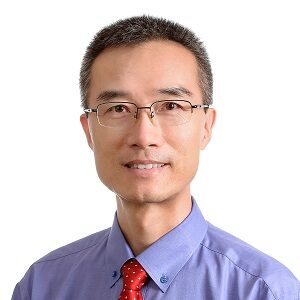CITE & Faculty of Education Joint Seminar
Neuroscience-inspired Sound and Music Computing (SMC) for Bilingualism and Human Potential
Chair: Dr. Xiao Hu
Bilingual education helps unlock human potential and is a priority research focus in Singapore. Bilingualism is a cornerstone of Singapore’s education system with most students taking classes in English and their mother tongue languages (MTL). However, proficiency in MTL can differ greatly depending on the MTL exposure level in their early years. To help students learn their MTL effectively, we have attempted to transform insights from cognitive and neuroscience into real-life applications. In this talk, I will highlight the journey of our SLIONS project that was transformed from a rehabilitation application to EduTech. The key idea behind the project is to combine teachers’ human intelligence with big data, and to convert them into machine intelligence which will facilitate joyful and effective MTL learning. The SLIONS’ activity and feedback components incorporate features designed to support self-regulated learning during deliberate practice as well as features informed by multimedia learning theory.


Ye Wang is an Associate Professor in the Computer Science Department at the National University of Singapore (NUS), and is also affiliated with the NUS Graduate School’s Integrative Sciences and Engineering Programme (ISEP), the Institute of Data Science (IDS), as well as the Institute for Applied Learning Sciences & Educational Technology (ALSET). He is an associate editor (AE) of Journal of New Music Research, and has just finished his term as AE of IEEE Transactions on Multimedia, and Distinguished Lecturer of Asia Pacific Signal and Information Processing Association (APSIPA). He established and directed the NUS Sound and Music Computing (SMC) Lab (https://smcnus.comp.nus.edu.sg/). His team received the ACM MM 2004 Best Student Paper Award, IEEE ISM 2012 Best Paper Award, ISMIR2014 Best Paper Award, APSIPA ASC 2017 Best Student Paper Award, and ACM MM 2022 Top Paper Award. Before joining NUS he was a member of the technical staff at Nokia Research Center in Tampere, Finland for 9 years. His research at NUS is centered on sound and music computing for human health and potential (SMC4HHP). His most recent projects involve the design and evaluation of systems to support 1) therapeutic gait training using Rhythmic Auditory Stimulation (RAS), 2) second language learning.